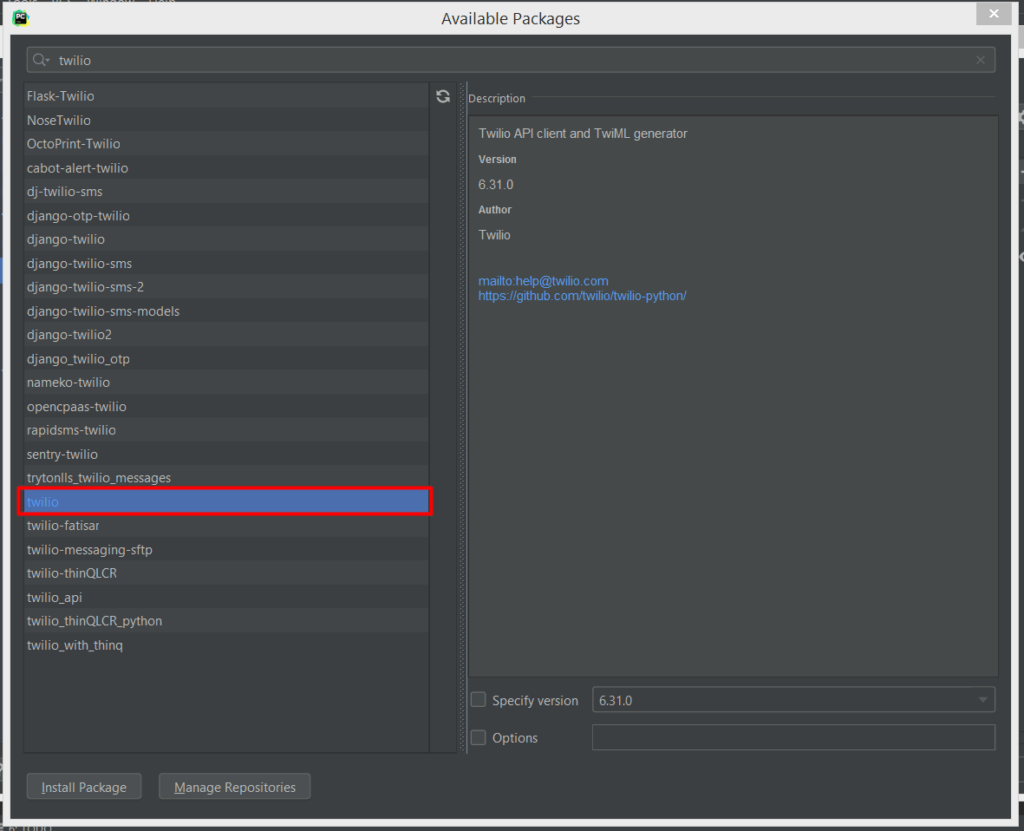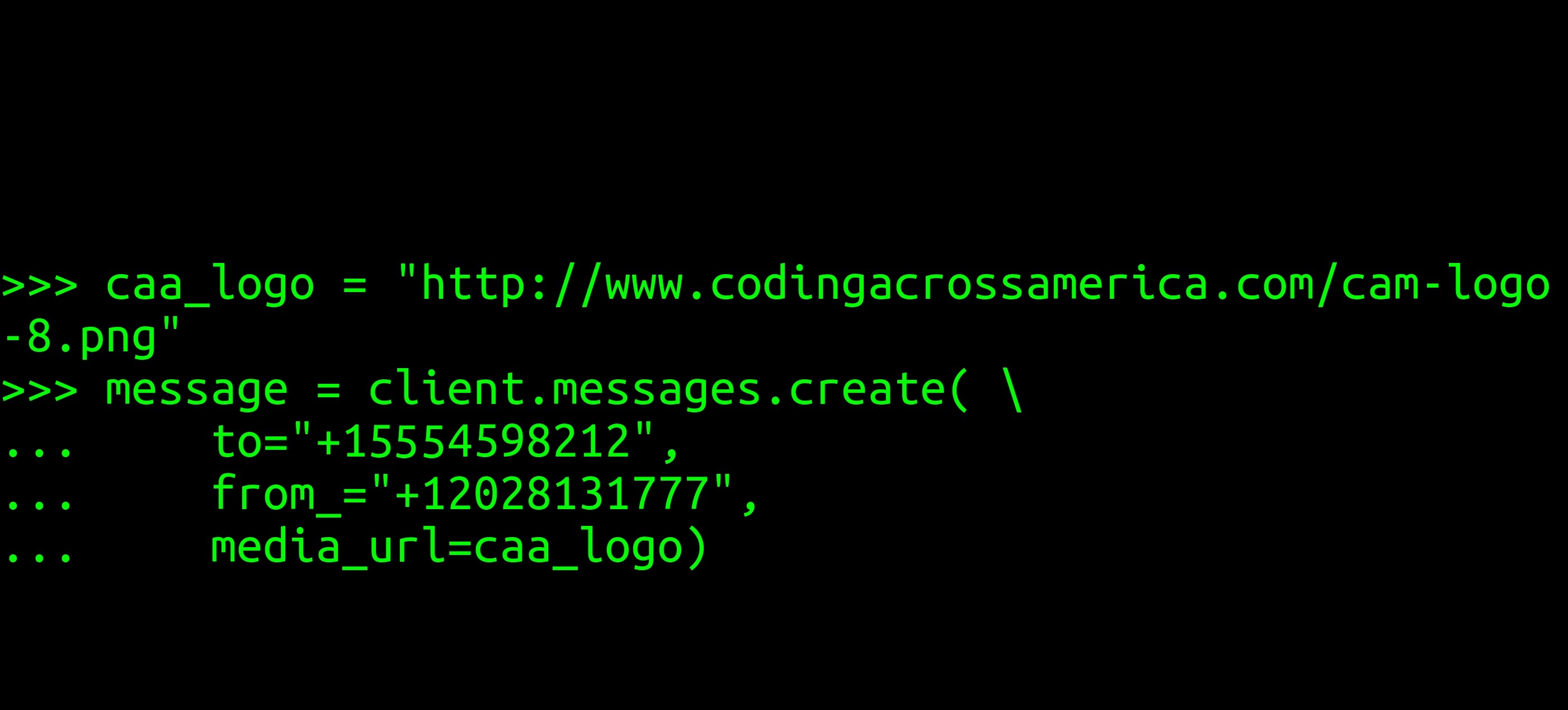
- #Twilio python send sms to multiple numbers for free#
- #Twilio python send sms to multiple numbers how to#
- #Twilio python send sms to multiple numbers serial#
- #Twilio python send sms to multiple numbers code#
You should see a result similar to figure 4 below, in case of success.

#Twilio python send sms to multiple numbers serial#
When the procedure finishes, open a serial monitoring tool.
#Twilio python send sms to multiple numbers code#
Make sure to replace all the placeholders from the code above by the actual values for your account. To test the code, compile it and upload it to your device using a tool of your choice (Arduino IDE, Platformio).

Serial.println("Connected to the WiFi network") īool result = sendSMS("Test SMS from ESP32") Serial.println("Error on HTTP request:") There, we can obtain both the Account SID and the Auth token, as highlighted in green on figure 1.Ĭonst char* password = "yourNetworkName" Ĭonst char * messagingServiceSid = "yourMessagingServiceId" Ĭonst char * to = "destinationPhoneNumber" Ĭonst char * twilioPassword = "yourApiKey" To get the account number and the Authentication token, we can navigate on the left side menu (after we log in to Twilio), on the “ Messaging” separator, on the “ Get Set Up” entry. In order to be able to send SMS, we will need the following information, which can be obtained from the Twilio account pages:
#Twilio python send sms to multiple numbers for free#
We will also to setup a Messaging Service, which can be done for free at the time of writing. So, please follow the guide from Twilio, as it details all the necessary steps.Īt the time of writing, we need a valid email address to register on the platform and we need to validate a personal phone number, as we are only allowed to send test SMS to that validated number while using the Trial account.
#Twilio python send sms to multiple numbers how to#
We are not going to be covering here all the details on how to create a trial account or its limitations, as these may change with time. The Arduino core version used was 2.0.0 and the Arduino IDE version was 1.8.15, working on Windows 8.1. The code was also tested on Platformio and the screenshots from the tests shown below were taken from this platform. The tests shown below were performed on a ESP32-E FireBeetle board from DFRobot.

Although I didn’t test it and cannot confirm it works as expected, I’ll leave it here as reference for those who may be interested in trying it. Nonetheless, at the time of writing, I found this library that hides these details from us. This means that we are going to build the HTTP request ourselves (which is very simple, as we will see below). Please note that we are not going to be using any Twilio library to take care of the HTTP details. Here, for simplicity, we will use a method from the Arduino core that only receives the username and password and takes care of the details. In the mentioned tutorial we build the header ourselves, which gives a more detailed view of what is done under the hood. Adding Basic Authentication to a HTTP request: Explains how to add basic authentication when performing a HTTP request from the ESP32.Although, for simplicity, we are not going to use any certificate in our code, it is a good ideia to provide one in a real scenario, due to security reasons.



 0 kommentar(er)
0 kommentar(er)
